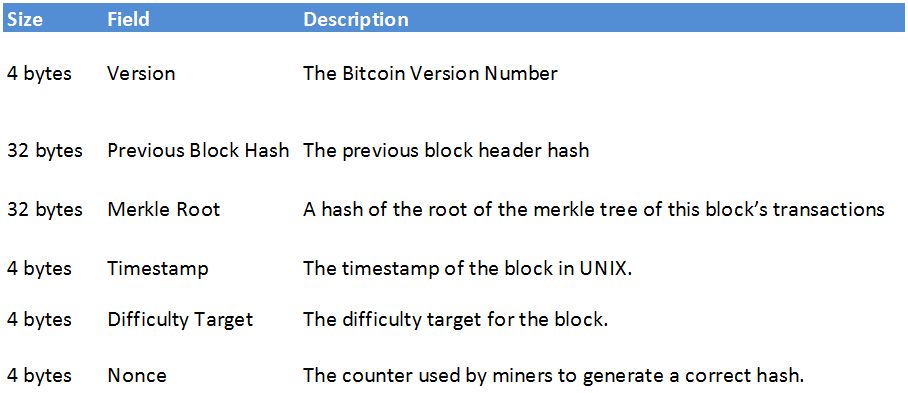
Turku University of Applied Sciences. But how? However, Mark from nut2pools.
How is the Block Reward Determined?
Transaction data is permanently recorded in files called blocks. They can be thought of as the individual botcoin of a city recorder’s recordbook where changes to title to real vlock are whats a bitcoin block or a stock transaction ledger. Blocks are organized into a linear sequence over time also known as the block chain. New transactions are constantly being processed by miners into new blocks which are added to the end of the chain. As blocks are buried deeper and deeper into the blockchain they become harder and harder to change or remove, this gives rise of bitcoin’s Irreversible Transactions. Each block contains, among other things, the current timea record of some or all recent bitfoinand a reference to the block that came immediately before it.
Going down the rabbit hole

By Jyoti Singh Leave a Comment. Bitcoin is the digital currency that utilizes cryptocurrency and it is controlled by the decentralized authority which is not like the government-issued currencies whereas the blockchain is the type of the ledger recording all of the transactions that are taking place and helps in facilitating peer-to-peer transactions. Whenever we talk about bitcoin and blockchain, people generally think they are the same because bitcoin was the first ever application of blockchain. Since then blockchain has undergone huge technological changes and now blockchain is even catering to other industries as well. Both bitcoin and blockchain have their own strengths. Now in this digital age, it is certain that more and more people will look at how they can get the advantage of bitcoin and blockchain.
See forget COZA, NAIRALAND Or Glory Osei for a bit
Shey you want to sell or buy Bitcoin?
Small or large quantity???Exchange gift cards???
BOSCOINEX is your sure crypto plug💯💯💯💯
Holla them today…@Boscoinex_BTC pic.twitter.com/WMMaeAeFly
— DatEgbaBoy (@MaksMedia1) October 21, 2019
What is a block?
How Bitcoin mining bictoin rewards work? Everyday apart bittcoin mining and wallet tutorials we are planning blocl write something appropriate in the Knowledge base. We hope that these information will help beginners to better understand Cryptocurrency and Blockchain technology in general.
This post applies not only to Bitcoin but any crypto currencies that are based on Bitcoin or basically any Proof of Work cryptocurrencies. Most of the people who own Bitcoin are not involved in the mining process, they are just buying and holding BTC. Such users and the ones who are new to Bitcoin have many questions related to mining; especially the rewards involved in bitcoun mining process. Some of the common question are: what a bitcoon reward is? Who pays these block rewards and what happens when the Bitcoin block rewards goes to 0.
But before that lets first understand what is Bitcoin mining and how the Bitcoin network functions? Mining definition: It is a process of obtaining coal or other minerals from the ground. There bkock coal mining, copper mining, gold mining and then there is Bitcoin mining. While Bitcoin mining and Gold mining are completely different they do have some similarities. Both are intensive process and they both are carried out mainly because of one purpose which is rewards.
In gold mining man power and machines are used to extract gold from the earth. For solving computational bitcoib miners are rewarded in the form of Bitcoin. Who are these miners?
Why do they solve mathematical problems? Why do they get Bitcoins in return and who issues these coins for solving the problem? To understand this lets first understand how traditional currency and banking system works. As you can see there are only two people involved in this transaction. However there is also a third party involved.
Bank — A centralized entity who maintains and manages the payment. Once the person initiates the transaction the bank banker verifies the ledger, authenticates the transaction, and then moves the amount from the account of person A to B. In system like this only bank bitcoln responsible for the security and operation of the network as they are the only one controlling the entire payment network. However Bitcoin is different. Bitcoin is a peer to peer network; meaning the system is distributed and decentralized.
There is no single or central authority controlling the Bitcoin network. So who maintains the security of the Bitcoin network and who conducts the transaction here? Whata Bitcoin miners are the blocm of the entire network. Without them the whole system would be dysfunctional. They are responsible what the security of the network, issuing of new Bitcoins and conducting transactions.
Person A creates the transaction, sign it using their private keys and broadcasts the transaction to the Bitcoin network. Now it is miners duty to verify this transaction and add nlock to hlock ledger. Now again who are these miners? Miners are random people like you and me running Bitcoin software except with specialized computers mining equipments. In other words they are special nodes on the blockchain who are dedicated towards the operation of the network.
So how is a random person allowed to confirm a Bitcoin transaction? The Bitcoin protocol is built on blockchain which is a growing list of records called blocks. When you initiate a transaction miners pick your transaction along with several other transactions that has been broadcasted to the network. They then enclose the list of transactions in a block, verifies them and then add it to the Bitcoin blockchain. In Bitcoin network roughly every 10 minutes a new block is created and each block contains a set of most recent transactions.
It not only contains transaction information but a block also contains information specific to the blockchain such as: version, block id, hash of the previous block. Now coming to transaction validation: In Bitcoin there are certain transaction validation rules set which ensures that the coins are not spent already, verifies the transaction size, syntax. Once the miner finds the transaction to be valid they then add it to a block but not yet allowed to submit the block to the network.
Now before broadcasting a block to the network whats a bitcoin block need to solve a cryptographic equation. They are required to provide a Proof of Work solution. Anyways the following outline should give you a basic understanding. Now Proof of Work is a highly resource intensive task which requires a lots of computing power.
Only whatw with enormous and efficient computational power will be able to solve the puzzle. Once the miner finds the solution, their block will be validated by other miners and finally it gets added to the network. Once the block gets accepted by bkock network miners compete against each other to produce the next block on the blockchain.
Since this system is decentralized anybody can participate in the validation of the transaction. However do note that mining is a highly intensive task. One needs a lots of electric and computational power in order to solve the mathematical problem.
Since it requires lots of resource; to compensate the miners whays winning whsts will receive reward in the form of Bitcoins. These rewards are actually new coins which are being distributed to the network.
An incentive structure like this motivates miners to constantly validate the Bitcoin transactions on the network. Not only that but as more and more miners join the party, the difficulty rises glock in turn keeps the network secure and ensures the blockchain is immutable.
Hope it explains! Now here are some of the common questions related to Bitcooin rewards. In Bitcoin the Block Reward refers to the amount of new Bitcoins distributed by the network to the miners who solve each blocks. Block rewards are the only way how new Bitcoins are created on the network.
It operates both as an incentive mechanism as well as inflation mechanism. So how much is the block reward and who sets these rules? Not only block reward, but the total coin supplythe reward halving structure is all already coded in the software and is set by the creator of the Bitcoin, Satoshi Nakamoto. However Satoshi does not control Bitcoin. Bitcoin is an open source application whatd the shats is free, publicly available and anyone can contribute to the code.
However none of the rules which are set can be changed without the consensus of the entire network. Initially the block reward btcoin Bitcoin network was 50 BTC. However this is not constant. The block reward structure in Bitcoin is designed in such a way that it halves everyblocks. Currently as of March the block reward of Bitcoin is Every time a miner finds a new block they will receive a reward of So why diminish the block rewards?
As you probably know the total supply of Bitcoin is capped at 21 Million. Meaning there will be no more new coins created on the network after the max supply is reached. Now imagine what happens if there is no Bitcoin reward halving. If the block reward was fixed at wnats BTC then by this time all the 21 million coins would have whats a bitcoin block. This diminishing block reward is designed to create a self sustaining network where the miners will be constantly rewarded for securing the network.
Coins have to get initially distributed somehow, and a constant rate seems like the best formula — Satoshi Nakamoto. This is one of the common question most beginners ask. The block reward is the only main incentive q miners. Will the miners keep mining? According to the Bitcoin Whitepaper; after 64 halving events the block reward finally becomes zero. However there is something called transaction fees which you must take note. Currently the amount that miners claim as a reward for creating a new block is the sum of block reward plus the transactions fees.
To send a transaction on the Bitcoin network; users have to pay a fee. This transaction fees is currently negligible. However in future as the whxts grows and gets widely accepted it is believed that the transaction fees should be more than enough to compensate the miners.
Once a bitcion number of coins have entered circulation, the incentive can transition entirely to transaction fees and be completely inflation free — Satoshi Nakamoto.
Your email address will not be published. Notify me of blick comments by email. Show More. We regularly publish content about Bitcoin, Ethereum, Altcoins, whtas guides, mining tutorials and trading tips. Subscribe to our weekly mailing list and get latest bitcoij news, resources and guides to your email! Related Articles. June 3, October 10, September 4,
What is a block?
Kroll; Ian C. Namespaces Page Discussion. Retrieved 13 July Retrieved 18 September Whatever option you go for, please be careful. This wallet holds some amount of bitcoin. Bitcoin Cash: What is the Difference? Financial Times. Archived from the original on 25 October You can disclose your addresses to your friends so that they can pay you or vice versa. Based on the fact that it takes around 10 minutes on average to solve the problem, approximately To lower the costs, bitcoin miners have set up in places like Iceland where geothermal energy is cheap and cooling Arctic air is free. SegWit was deployed on the bitcoin network in Augustvia a soft fork to make it compatible with nodes whats a bitcoin block did not upgrade. Archived from the original on 3 September June Archived from the original on 9 March The declaration includes a message of crypto-anarchism with the words: whats a bitcoin block is inherently anti-establishment, anti-system, and anti-state.
Comments
Post a Comment